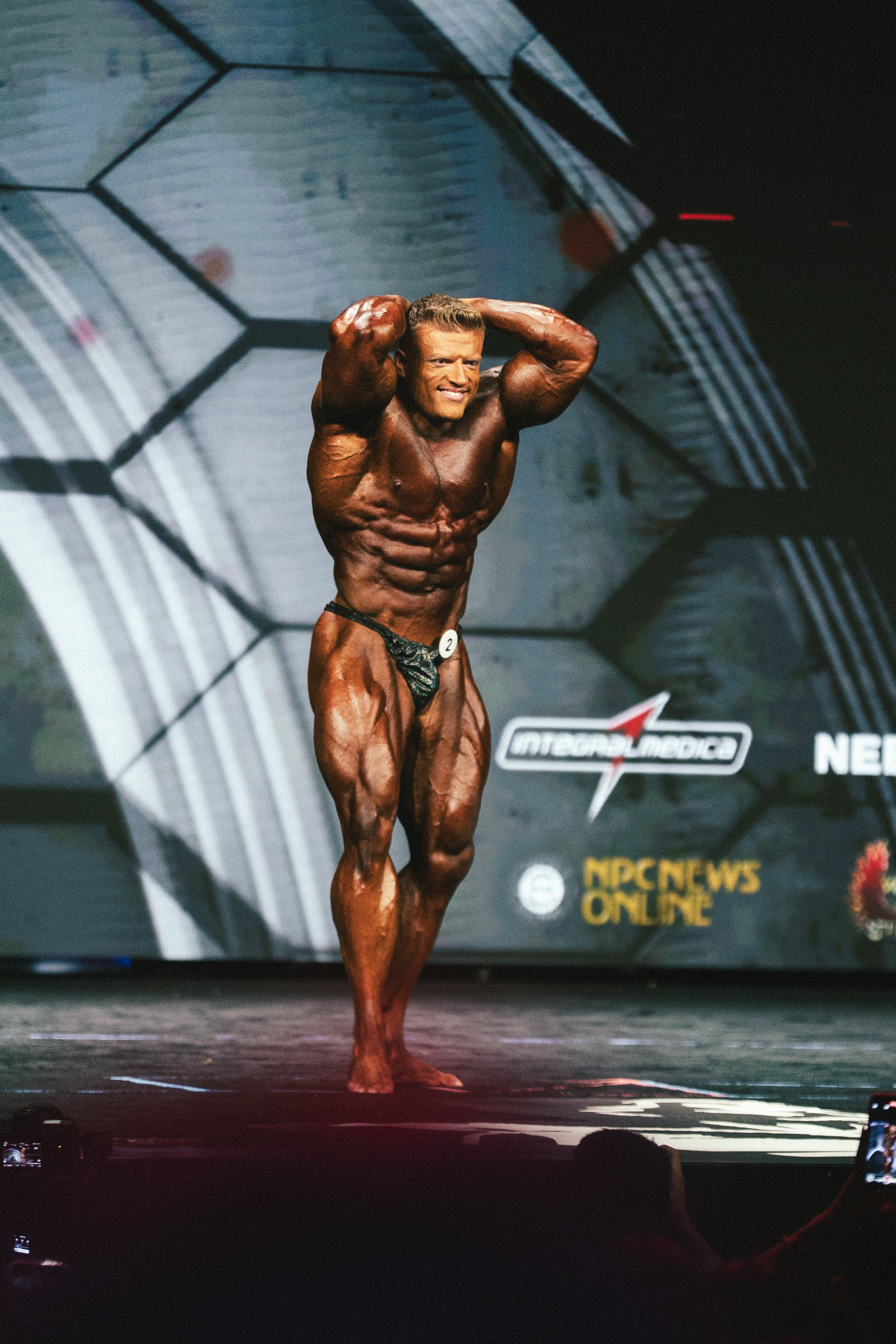Tags: Nutrition, Health, Regeneration, Supplements
The Underestimated Key to Health, Fitness and Bodybuilding
While macronutrients such as proteins, fats and carbohydrates are often the focus when it comes to nutrition for health, fitness and bodybuilding, micronutrients are just as important - if not crucial. Micronutrients are vitamins, minerals and trace elements that the body needs in very small amounts but are essential for a variety of processes.
In this article, we take a look at the role of micronutrients in the diet of fitness enthusiasts, strength athletes and bodybuilders and explain why their adequate intake is just as crucial as the right amount of macronutrients.
What are Micronutrients?
Micronutrients are organic (vitamins) and inorganic (minerals) substances that are necessary for numerous biological functions, such as energy metabolism, cell regeneration and immune system support. Unlike macronutrients, micronutrients do not provide energy in the form of calories, but they contribute to the efficiency of energy production and cellular health.
The most important micronutrients include:
- Vitamins: A, B vitamins (e.g. B12, B6, folate), C, D, E, K
- Minerals: Calcium, Magnesium, Potassium, Sodium, Phosphorus
- Trace elements: Iron, Zinc, Selenium, Manganese, Copper
Note: Without a balanced intake of macronutrients, the body cannot efficiently utilize micronutrients. Learn how to use proteins, fats, and carbohydrates for maximum muscle growth and fast recovery in our article on macronutrients.
Micronutrients and Their Importance for Health
Micronutrients have far-reaching effects on overall health and fitness. They are involved in a variety of physiological processes:
1. Strengthening the Immune System
Vitamins such as Vitamin C, Vitamin D and Zinc support the immune system and help the body to defend itself against diseases and infections. Especially during intensive training phases, the immune system can be weakened by increased stress, which is why a sufficient supply of these micronutrients is particularly important.
2. Bone Health and Joints
Calcium, Magnesium and Vitamin D are essential for strong bones and healthy joints. Bodybuilders who regularly lift heavy weights in the gym should especially ensure they have an adequate supply.
3. Antioxidant Effect Against Cell Stress
Many micronutrients, such as Vitamin C, Vitamin E and Selenium, act as antioxidants that protect cells from oxidative stress. Intense exercise increases the production of free radicals, which is why a good micronutrient intake helps to minimize inflammation and cell damage.
4. Energy production and performance
B vitamins (especially B6, B12 and Folate) play a key role in energy metabolism by supporting the conversion of macronutrients into energy. Without sufficient amounts of B vitamins, it will be difficult to sustain intense training sessions or tough competition preparation.
Micronutrients in the Fitness and Bodybuilding Context
For fitness enthusiasts, strength athletes and bodybuilders, micronutrients are not only important for general health, but also for athletic performance, muscle building and regeneration. Some micronutrients are particularly relevant:
1. Vitamin D
Vitamin D is a crucial micronutrient that is often overlooked but is of key importance for bodybuilders. It promotes the absorption of Calcium and Magnesium, which in turn supports muscle function and strength. In addition, Vitamin D has a role in protein biosynthesis, which is essential for building muscle. A deficiency in Vitamin D can lead to muscle weakness and increased risk of injury.
2. Magnesium – Regeneration and Muscle Contraction
Magnesium is essential for muscle function as it supports muscle contraction and promotes recovery after exercise. It helps prevent muscle cramps and supports the nervous system, which is responsible for muscle control. Magnesium deficiency can lead to poor sleep quality and increased stress, which negatively impacts training performance.
3. Zinc – For the Immune System and Testosterone Levels
Zinc is not only an important component of the immune system, but also crucial for testosterone levels. Optimized testosterone levels are very important for building muscle and burning fat. Zinc also plays a role in the repair of cells and tissue, which is especially important during the intense training process.
4. Iron – Oxygen Supply and Endurance
Iron is a key mineral responsible for the formation of hemoglobin in the blood. Hemoglobin transports oxygen to the muscles, which is essential for endurance and performance during exercise. Iron deficiency can lead to fatigue and a drop in performance, which can significantly hinder training progress.
5. Vitamin C – Support for Regeneration
Vitamin C is not only a powerful antioxidant, but also supports collagen production and thus the health of ligaments and tendons. This is especially important for bodybuilders who work with heavy weights and place high mechanical stress on the connective tissue. Vitamin C also helps to accelerate regeneration and support the immune system during intensive training phases.
Micronutrient Deficiency and its Effects on Training and Progress
A lack of micronutrients can significantly affect both physical health and training success. Symptoms of a micronutrient deficiency are:
- Fatigue and loss of performance
- Slowed regeneration
- Increased risk of injury
- Weak immune system
For bodybuilders and athletes, this can lead to stagnant progress and even muscle loss if the body is not adequately supplied with the necessary nutrients.
It is advisable to include foods with a high density of micronutrients in your diet. A blood test can also be a very good investment to ensure that there are no deficiencies.
General supplement recommendations for micronutrient supply to counteract the most common deficiencies:
Athlete Stack - complex with numerous micronutrients
Conclusion: Micronutrients are Essential for Muscle Building and Performance
Micronutrients are essential for health, fitness and success in bodybuilding. They support numerous body functions that are necessary for training and muscle building, while also contributing to general vitality.
A balanced diet that provides all important micronutrients in sufficient quantities is just as important as the intake of macronutrients.
Be careful not to underestimate the importance of micronutrients – they are the key to sustainable muscle building, regeneration and maximum performance.


